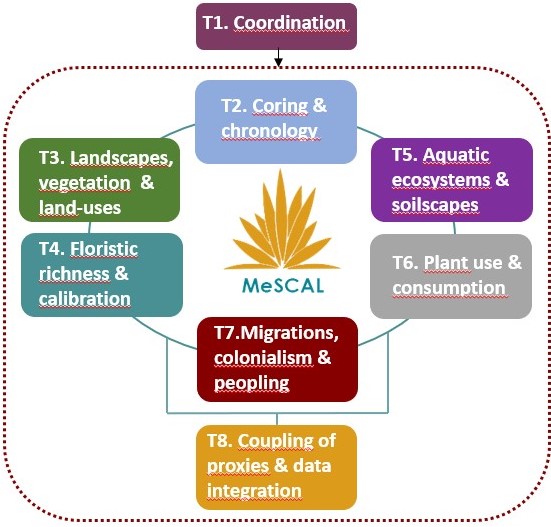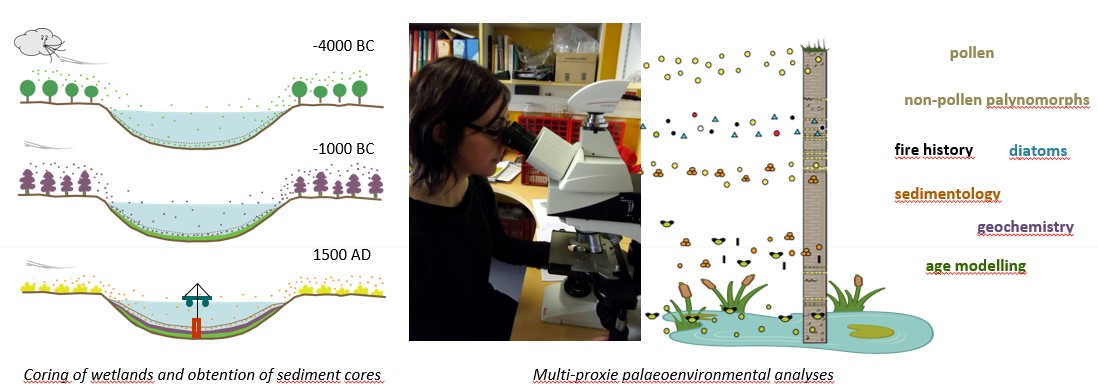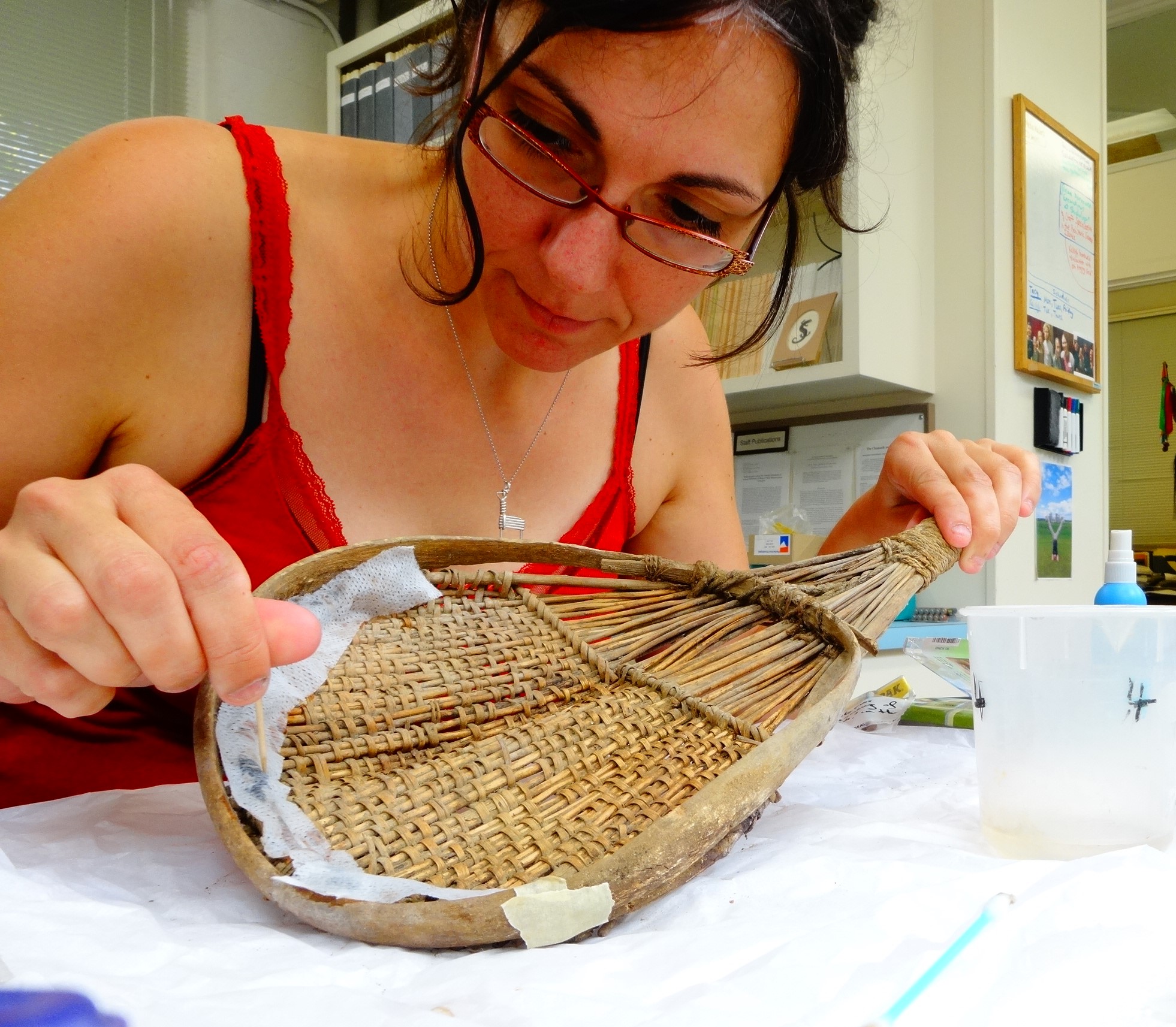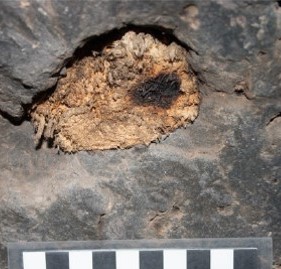
MeSCAL will be developed through eight interrelated tasks. Seven of these tasks will focus on obtaining and dating sedimentary records (T2), development of palaeoenvironmental analyses in wetlands (T3 & 5), calibration of fossil palaeoenvironmental data with modern analogues (T4), archaeobotanical analyses (T6) and integration of palaeoenvironmental results with archaeo-historical information (T7 & 8).
Palaeoenvironmental analyses

MeSCAL relies on the high-temporal study of multiple palaeoenvironmental indicators in sedimentary records from continental wetlands and marine records (Task 3&5). Pollen and non-pollen palynomorph (NPPs) analyses will allow reconstructing Late Holocene vegetation changes such as landscape clearance, manipulation of plant resources or introduction of agropastoral practices and exotic taxa following prehistoric and colonial settling in the different study areas. In addition, sedimentary microcharcoal analyses will allow the reconstruction of past natural and anthropogenic fire history. Diatom analyses will track past ecological responses of aquatic ecosystems (water table oscillations, salinity changes, eutrophication) related to the introduction of land-uses following migration and colonial processes and/or to climatic drivers. Sedimentology and geochemistry analyses will allow identifying erosion and eutrophication processes, salinity fluctuations, or the geomorphological evolution of wetlands due to climate/environmental changes and/or the introduction of specific land-uses.
Archaeobotanical analyses


Datura chew, Pinwheel Cave, San Emigdio mountains
MeSCAL also carries out palynological analyses of archaeological artefacts related to plant use (Task 6). These can furnish direct information on past consumption and use and importing of plants. We will perform palynological analyses in selected objects retrieved from excavations directed by our team member Dr. D.W. Robinson (UCLA, UK) in Chumash caves from the San Emigdio Mountains which were used during pre- and post-colonial periods.
Coupling of palaeoenvironmental & archaeo-historical information
Available archaeo-historical data-sets will be collected and analyzed in the three different locations to reconstruct regional Late Holocene human settling, migrations and colonial processes (Task 7). Special attention will be placed on information related to prehistoric and colonial land-uses, subsistence patterns and landscape manipulation. The participation in the project of archeologists and ethno-historians with a long experience in the local archaeo-history of each study area is essential in the development of this task. The correlation of palaeoenvironmental and archaeo-historical information will be critical to meet the MeSCAL goals of reconstructing the spatial distribution of land-uses and plants following Late Holocene migratory and colonial processes, and assessing the impact of migratory and colonial processes into native landscapes and ecosystems.